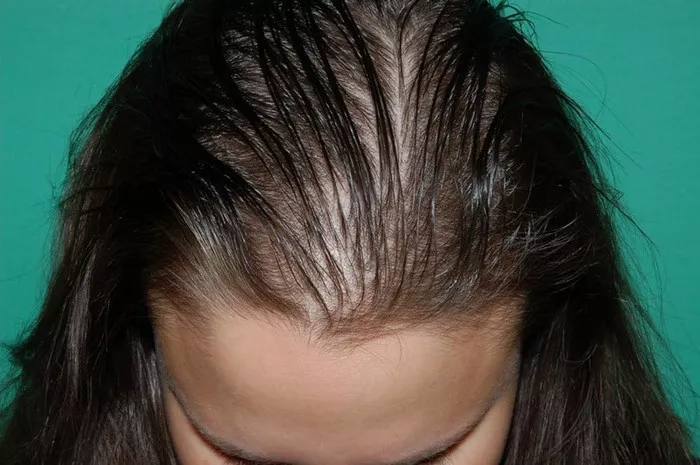Hair loss is a common concern for many individuals, and it can be caused by various factors, including certain scalp conditions. Understanding these conditions is crucial for effective management and prevention of hair loss. In this comprehensive guide, we will explore different scalp conditions that can lead to hair loss, shedding light on the scientific aspects, and providing knowledge and insights to help you maintain a healthy scalp and promote hair growth.
Understanding Hair Loss
Hair loss, medically known as alopecia, is a condition that affects millions worldwide. Before delving into scalp conditions, let’s briefly explore the hair growth cycle and the various types of hair loss, including androgenetic alopecia, telogen effluvium, and alopecia areata. This foundational knowledge will provide context for understanding how scalp conditions can contribute to hair loss.
What is the hair growth cycle?
The hair growth cycle is a continuous process that every hair on our scalp goes through. It consists of three main phases: anagen, catagen, and telogen.
1. Anagen Phase (Growth Phase):
This is the active phase where the hair follicle produces new hair. During anagen, the cells in the hair bulb divide rapidly, leading to hair growth. This phase can last for several years, depending on genetics and other factors, and determines the length of the hair.
2. Catagen Phase (Transitional Phase):
After the anagen phase, the hair follicle undergoes a brief transitional phase called catagen. During this stage, hair growth stops, and the follicle shrinks. It lasts for a few weeks.
3. Telogen Phase (Resting Phase):
The telogen phase is a resting period for the hair follicle. In this phase, the hair is no longer growing, and it remains attached to the scalp while a new hair begins to form beneath it. This phase can last for several months.
After the telogen phase, the old hair is shed, and the cycle starts anew with the anagen phase. Understanding the hair growth cycle is essential to comprehend hair loss and the effectiveness of various hair treatments.
The Importance of Scalp Health
Scalp health is of paramount importance for overall hair health and appearance. A well-nourished and balanced scalp creates a conducive environment for strong, lustrous hair growth. Here are some key reasons highlighting the significance of maintaining a healthy scalp:
1. Promotes Hair Growth:
A healthy scalp provides the necessary nutrients and oxygen to hair follicles, promoting optimal hair growth during the anagen phase of the hair growth cycle. It ensures that the hair follicles are not weakened or clogged, which can lead to hair thinning or hair loss.
2. Prevents Hair Loss:
Many common scalp conditions, such as dandruff, seborrheic dermatitis, and psoriasis, can contribute to hair loss if left untreated. A well-maintained scalp reduces the risk of inflammation, infections, and hair follicle damage, thus preventing excessive shedding.
3. Maintains pH Balance:
A balanced pH level on the scalp helps to keep the skin barrier intact, preventing moisture loss and minimizing the risk of dryness and irritation. Proper pH balance aids in keeping the scalp healthy and comfortable.
Several Conditions That Can Affect Scalp Health
Scalp health can be affected by various conditions, some of which can lead to discomfort, irritation, and even hair loss. Understanding these conditions is essential for proper management and maintenance of a healthy scalp. Here are several common scalp conditions that can impact scalp health:
1. Seborrheic Dermatitis:
Seborrheic dermatitis is a common scalp condition characterized by red, inflamed, and flaky skin. We will delve into the causes and risk factors of this condition, exploring how it affects the hair follicles and disrupts the hair growth cycle. Expert insights on effective management and prevention strategies will be shared to help individuals combat seborrheic dermatitis-related hair loss.
2. Psoriasis and Hair Loss:
Psoriasis, an autoimmune condition, can also affect the scalp, leading to thick, scaly patches. We will focus on psoriasis of the scalp and its potential impact on hair loss. By understanding the complex relationship between psoriasis and hair loss, readers will gain valuable knowledge to address this condition and its effects on hair health.
3. Folliculitis:
Folliculitis, the inflammation of hair follicles, can be caused by bacterial or fungal infections. We will explore how this condition disrupts the hair growth cycle and contributes to hair loss. Recognizing the symptoms and implementing appropriate treatment approaches will be essential for individuals dealing with folliculitis-induced hair loss.
Conclusion:
Scalp conditions can significantly impact hair health and contribute to hair loss. By deepening our understanding of the intricate relationship between scalp health and hair growth, we empower ourselves to take proactive steps in maintaining a healthy scalp. With expert knowledge, actionable tips, and proper care, we can nurture our scalps and promote luscious, strong hair growth. Armed with this newfound knowledge, readers can embark on a journey towards healthier scalps and more resilient hair, enhancing their confidence and overall well-being.


